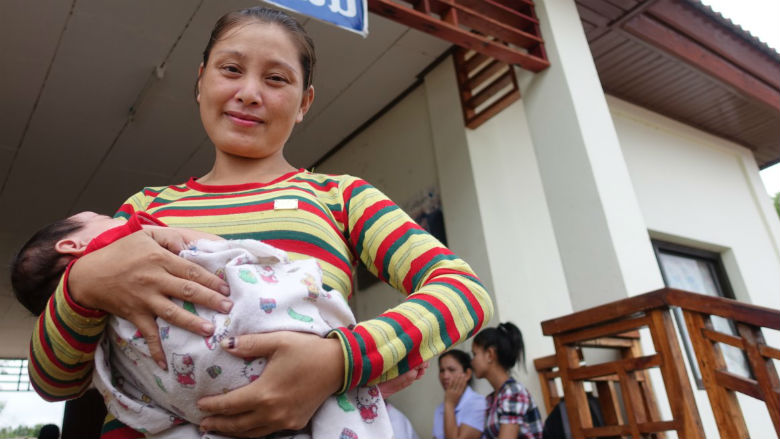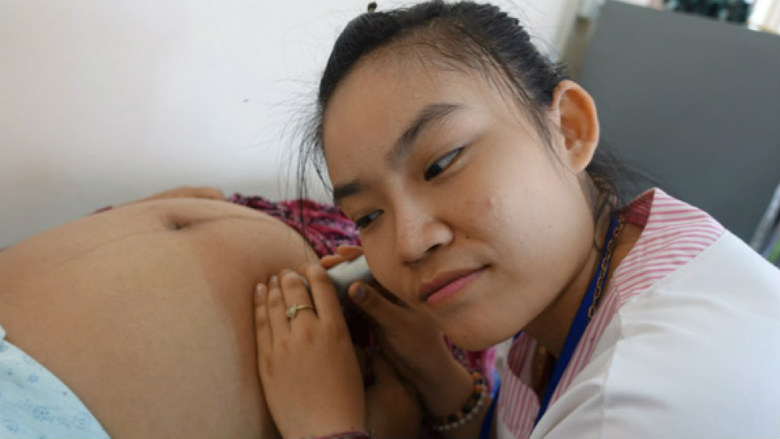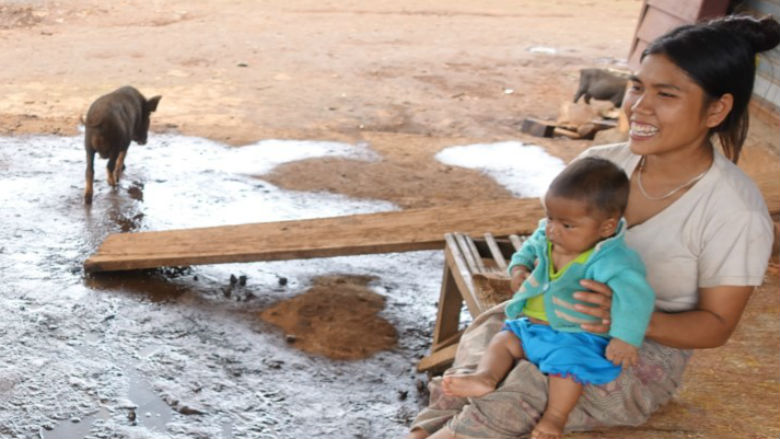Lin, 22, holds her seven-week-old daughter firmly as she wraps a piece of cloth tightly around the baby’s body. She is waiting to meet a health worker about family planning at the Maternal Neonatal and Child Health (MNCH) section of Sekong Provincial Hospital.
In the MNCH consultation room, Lin is reluctant to have her baby vaccinated. Unlike her first born, her young daughter has not received the required immunizations.
“I completed all the doses of required vaccinations [for the first child], but I do not want to repeat taking vaccines for my second child,” she says. “It is very painful and I do not see any need for vaccination. My child is healthy.” It took Somsei Luangphukdee, a health worker, some time to convince Lin about the benefits of having her newborn baby vaccinated.
Sekong province was one of five provinces —targeted by the Ministry of Health and supported by the World Bank to increase usage and quality of health services for poor women and children, particularly in rural areas. The project supported health facilities to effectively deliver to the population quality health care services, including immunization, antenatal care, postnatal care, delivery, nutrition, and family planning services. To address the fact that many poor households in rural areas of Lao PDR do not visit health facilities due to geographical, financial, and cultural barriers, the project also supported outreach sessions that brought health facility staff to deliver basic health, nutrition, and family planning services to the rural communities, as well as to raise awareness and encourage members of the rural communities (particularly pregnant women and caregivers of infants and young children) to visit health facilities for additional maternal and child health and nutrition services.
The Health Services Improvement Project (HSIP) has funded more than 750,000 services that helped poor and vulnerable people gain access to a basic package of health, nutrition, or reproductive health services. To serve these communities, 424 health facilities were constructed and renovated, and more than 3,350 health personnel have received training.
Under the project, a Health Equity Fund (HEF) is helping to provide benefits to households based on their income status; all of the poor in Sekong province are covered by the fund. With support from the project, the Lao PDR Government contracted the Swiss Red Cross (SRC) to provide free basic health services to poor families under HEF—known locally as the poor insurance card.
“Thanks to the World Bank support that put systems in place, it was possible to expand basic health services across Sekong province,” says Vanhnakhone, deputy head of Lamam district.



